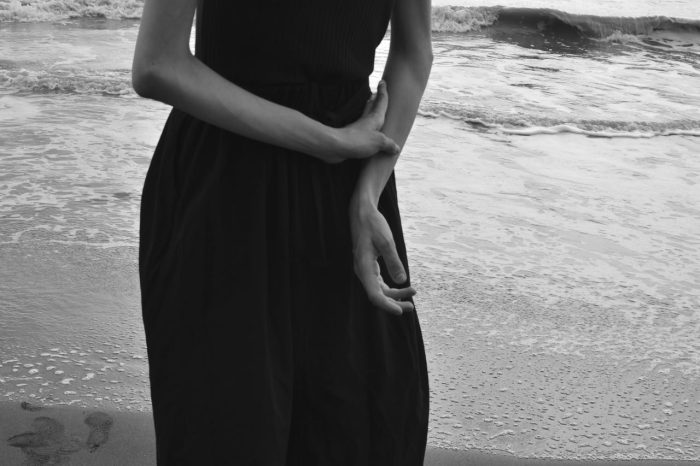
{*Did you know you can write on Elephant? Here’s how—big changes: How to Write & Make Money or at least Be of Benefit on Elephant. ~ Waylon}
~
“Yoga is the journey of the self, through the self, to the self.” ~ The Bhagavad Gita
~
A good friend recently reminded me of a distant confession: “You once said you work all the time to avoid feeling.”
I probably admitted that more than 15 years ago, though it’s still accurate. I’ve been a runner most of my life, literally and figuratively.
The truth is, I did feel, mostly anger and frustration. I was driven and felt people got in my way. They slowed me down. Friends, family, and strangers were obstacles to my goals, ranging from passing the state Bar Exam to reaching my exit on the freeway. Life then was a constant competition for first place.
People as roadblocks—that was my perception. Those days, I lived in my head. Logic and reason, cause and effect, and prudence and practicality were my mantras. In fact, I was paid good money for skepticism and forecasting. Writing contracts, mapping out litigation strategies, tax avoidance planning, and preemptive strikes of all stripes, that was the nature of my job. Emotions merely clouded clear-sightedness.
It wasn’t always that way, however. Early in my career, I cried with brokenhearted divorcing clients at their initial consultation. Not much later, I nudged the tissue box to them and waited impassively for them to continue their narrative. I could not do my job with my heart on the line, too. I was a better lawyer as a dispassionate and focused laser.
But after 15 years of stuffing my fears, anxieties, and empathy, my body began to break down. How long can anyone swim the turbulent waters swarming with madness, a toxic potion of extreme fear, anger, revenge, sorrow, love, trauma, and anxiety, without sinking? Divorcing couples often lose their minds, at least temporarily. Divorce is a death—the end of in-sickness-and-health guarantees.
I was dying.
Half of my life was brittle and dry. I lost sensation in my right arm after months of tingling, pain, then numbness. I could only turn my head to the left. I lost sleep most nights and lurched between exasperation and emptiness, and drive and depression.
Then, a series of traumatic events stunned me awake: my mother was sliding down the dead-end slope of dementia, my career screeched to a halt, and I began losing loved ones, some quite tragically. Someone had to rush everywhere and find the solutions, fix things, prop everyone up. “You’re the attorney,” I assumed they thought. “You know the answers.”
It was time.
My heart bled, my body broke, and my spirit flattened. Others’ burdens were a load too heavy to bear on the back of a ghost, a hollowed shell. I danced the surface edges of my being for so long, I finally toppled. The outside forces battered me into submission, forced me to fold inward.
I took a deep dive…
Pixelated images on a movie-memory screen, the light flickering like candlelight, I’m floating in warm Caribbean water with my ears submerged, sandwiched in the blueness of sky mirroring the blueness of sea, hearing my heartbeat, and wondering what my life has been for and what it might be.
Another stab of light and I’m handcuffed, walking down a dingy basement fluorescent-lit corridor, cement and stone echoing shuffling feet, the dull thud of duty boots, the jingle of keys, and the howling—non-stop wailing bouncing off walls, bombarding my ears and lungs for a thousand steps—until there’s nothing left to shake out of me, heaving, breathless, like the elk escaped from the lion’s jaws. “Why are you crying?!” The deputy kept demanding.
And on day four of a retreat, 16 yoga classes down, during the last one, I hear the drone of my inner voice on repeat, “Where are you going? Where have you been?” It is my 50th birthday. I cry in child’s pose. I cry in downward dog. I cry in Warrior. I cry in savasana…
“Where am I going? Where have I been?”
Eventually, the scattered puzzle pieces lay before me, broken shards strewn like fallen soldiers on Bunker Hill. Only these mirror fragments refracted glints of spark in the dying light. I needed help putting the jigsaw back together.
The Sanskrit expression, Ishvara Pranidhana, came to me. Roughly, it means surrendering the ego to find the higher self or identification with the divine. Surrender is not the give up kind, but the bow to the mystery, the divine, to whatever ignites the light of realization kind that you are not all that you think, not all that you do. You are being.
The first word is Ishvara, or supreme Self, lord, king, or queen. The second word is Pranidhana, meaning surrender and devote. Studying the phrase allowed me to discern the self of presenting to the world and the Self of being or true essence everlasting. The words lured me to a buried truth.
We in modern history were fed a lie, or to be generous, a misreading of a partial truth. Sure, if you work hard, you can “be someone.” I studied hard, chose a helping profession (or so I thought), and triangulated between hard fitness, collapsed rest, and power yoga that I thought was balance.
That formula failed me. During a hellscape decade and a half, the hands of survivorship laid themselves upon my shoulders, held me in place, and ordered stillness. It manifested as 30 days in jail. There, I learned the power of my intentions, will, and heart. But not in the way it was as an attorney and stubborn middle child—not forcing the air to obey, slicing through it with an invisible sword, nor bullying my dharma into something it was not.
Before that, I cracked the asphalt road I was running during a week-long yoga retreat in Costa Rica, exposing a sliver of radiance. After a week’s glimpse into who I might be, I slowed to a crawl, closed my eyes, and looked inside, seeking a soul stretching through millennia in all directions.
At home, I began practicing daily, slow, breath-based yoga.
In time, another movie reel flickered, the one with the curly-haired five-year old girl in a spring dress, sitting cross-legged in the grass, her big brown eyes looking over her shoulder to answer the camera man’s call, the corners of her mouth hinting upward, her eyes slightly downcast.
Two years later, this sensitive child would beat up boys to protect her little brother. She morphed into the bookish tweener lost in stories and dreams, the hitchhiking barefooted teen with ripped 501 jeans and a cigarette dangling from the corner of her mouth, the 20-something pub-dweller writing poetry, the faithful daughter, anxious mother, loyal-beyond-reason wife, lawyer, teacher, writer, yogi, healer, animal lover, and world citizen.
But in the days emerging from the tempest, I was none of these. I was suspended time, worshipping the sacred detail.
Returning to that five-year old, I often closed my eyes and listened to my footsteps pad the earth. I counted the length of my breaths randomly most afternoons, watched the morning coffee percolate through a clear bubble on the pot, swished coconut oil through my teeth before breakfast, and chanted Sanskrit words to memory and forgiveness while soaking in the tub each night.
Flowing through asana with my eyes closed, lapsing into ujayyi breath waiting in doctor’s offices, and chanting om namo namaha in morning traffic were prayers at the altar and tools for excavating the inner terrain—even till today.
Unloading baggage (excess and distraction) on the way to enlightenment is nothing new. According to the book of Matthew, passage to God’s house was paved with sacrifice. To enter the narrow gateway into the holy city, rich men had to lighten their camels’ burdens. Material things were useless barriers. My camel was laden with accumulated illusions: fighting battles to prove my worth and abandoning tenderness as shameful and weak.
Which layers must we shed to fit through the eye of the needle or find the Self within the self?
First, we must shed misperception. We do this by recognizing when ego defines and judges us, causing mental chaos. Listening and nodding to each morsel of our body—muscle, bone, synapse, and sinew—as we practice yoga builds trust in our intuition. Then, we take Ishvara Pranidhana off the mat to our deepest held beliefs.
Through yoga, we learn our thoughts, values, beliefs, and “norms” are family, culture, society, community, and formal education inheritances, recycled images implanted in our brains from birth. My mother thought I should be a lawyer. Had I known my Self, I would not have sacrificed my self to please her.
Blanched with light, we discard faded images and beliefs into the sepia-tone background. Only then, we might hear the murmurings, an opaque voice, at first.
With time and devotion, we bear fruits of our practices and rituals. Like repeatedly flexing a muscle, we begin to strengthen our vocal cords, hone our focus, and hear it: inhale—I; exhale—Am.
~

This account does not have permission to comment on Elephant Journal.
Contact support with questions.